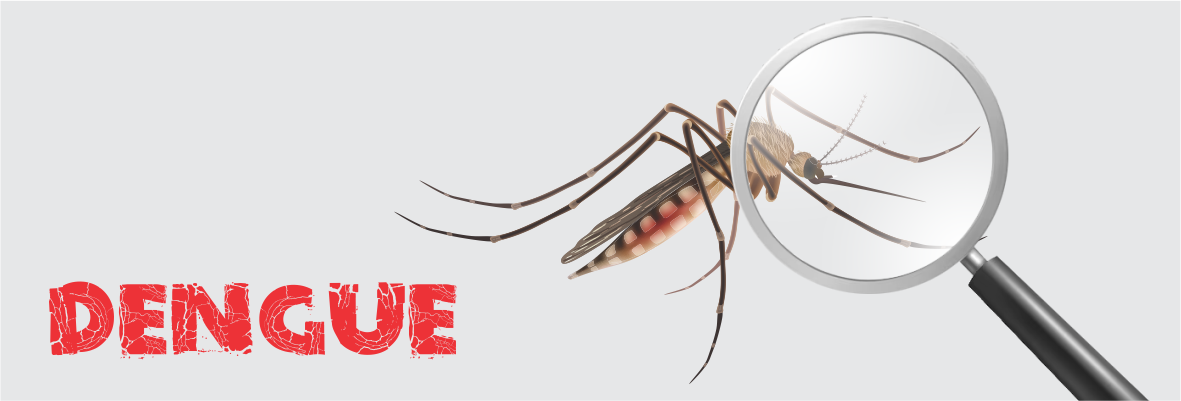Dengue fever is a mosquito-borne viral disease that poses a significant public health challenge in many tropical and subtropical regions of the world. With its rapid spread and potential for severe complications, early diagnosis plays a crucial role in effective disease management. Focused diagnostic approaches have emerged as valuable tools in the battle against dengue, enabling healthcare providers to promptly identify cases, initiate appropriate treatment, and prevent further transmission. This article explores the significance of focused diagnosis in dengue fever and highlights some key strategies and advancements in this field.
The Need for Focused Diagnosis:
Dengue fever presents with a wide range of symptoms, often overlapping with other febrile illnesses, making it challenging to differentiate without proper diagnostic techniques. The early identification of dengue cases is essential to initiate timely treatment, prevent severe complications, and implement effective vector control measures. Focused diagnosis methods aim to improve the accuracy, speed, and cost-effectiveness of dengue diagnosis, aiding healthcare providers in making informed decisions regarding patient care and public health interventions.
Key Strategies for Focused Diagnosis:
- Clinical Assessment and Case Definition:
Healthcare professionals play a critical role in recognizing clinical manifestations of dengue fever, such as sudden high-grade fever, severe headache, joint and muscle pain, rash, and other systemic symptoms.
Utilizing standardized case definitions helps clinicians differentiate dengue from other febrile illnesses, guiding appropriate diagnostic investigations.
- Rapid Diagnostic Tests (RDTs) :
RDTs are valuable tools for early dengue diagnosis, providing quick results within a short span of time (usually 15-20 minutes).
These tests detect dengue-specific NS1antigen and IgM & IgG antibodies produced by the immune system in response to the infection in patient blood samples, aiding in the rapid identification of the virus. Dengue NS1 Antigen test must be performed for the patients exhibiting clinical symptoms of Dengue, since NS1 Antigen can be detected from Day 1 of infection.
Rapid tests using combination of both NS1 Antigen and Antibody (IgM & IgG ) detection to diagnose Dengue , bridge the diagnostic challenges posed by the initial period of viremia and the delayed immunological responses .
Dengue Diagnosis by Dengue Rapid tests based on Fluorescence immunoassay (FIA)using analyzer is the best alternative to the ELISA with provision of conducting a single test at a time . They provide test results in 30-40 minutes and results are presented in terms of Dengue units similar to ELISA.
RDTs are particularly useful in resource-limited settings where access to laboratory facilities is limited.
- Molecular Diagnostic Techniques:
Polymerase Chain Reaction (PCR) and other nucleic acid amplification techniques allow the detection of dengue virus RNA or DNA in patient samples.
PCR-based methods offer high sensitivity and specificity, enabling early diagnosis, especially during the initial phase of infection.
These techniques are commonly used in reference laboratories and research settings . This test however requires a specialized lab set up involving equipment and Biosafety infrastructure along with skilled manpower to perform the test procedure
4)Serological tests (ELISA ):
Enzyme-Linked Immunosorbent Assays (ELISAs) and other serological techniques aid in determining the presence of antibodies (IgM and IgG) against dengue virus.
Serology is particularly useful in differentiating primary and secondary dengue infections and identifying past exposure to the virus.
Advancements in Focused Diagnosis:
Point-of-Care Testing (POCT):
POCT devices offer rapid, on-site diagnostic capabilities, reducing the turnaround time for test results.
These portable devices enable healthcare providers to diagnose dengue fever at the patient’s bedside or in remote areas with limited access to laboratory facilities.
Biosensors and Nanotechnology:
Ongoing research focuses on the development of biosensors and nanotechnology-based platforms for dengue diagnosis.
These innovative approaches aim to enhance the sensitivity and specificity of diagnostic tests while reducing costs and improving ease of use.
Conclusion:
Focused diagnosis plays a vital role in the early detection and management of dengue fever. By combining clinical assessment, rapid diagnostic tests, molecular techniques, and serological tests, healthcare providers can accurately identify dengue cases, initiate appropriate treatment, and implement targeted public health interventions. Advancements in point-of-care testing, biosensors, and nanotechnology hold great promise for revolutionizing healthcare delivery and improving patient outcomes.


